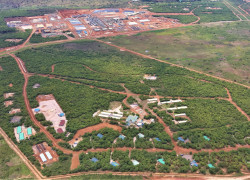Shifting markets: Quintet unveils 2023 investment outlook
“Counterpoint” highlights dynamics that will drive the global economy, financial markets and key asset classes over a year marked by cyclical change.
There will be little cause for celebration when the world rings in the new year. Amidst war in Ukraine and energy shortages, the eurozone and UK will grapple with recession over a cold, dark winter. In the US, where consumer and corporate activity are comparatively stronger, recession also looms but will be milder. In parallel, China will slowly but surely reopen, helping to avert outright global economic contraction. But punishing worldwide inflation, while easing, will likely remain above central bank targets in both 2023 and 2024.
As the seasons turn, however, markets will begin to shift. The year ahead will be one of two halves: starting sometime in the spring, central banks will stop hiking interest rates, inflation will visibly ease and – supported by Chinese acceleration – a new cycle of global growth will begin. The recovery will be uneven, though, with Europe and the UK lagging the US, and developed markets growing far more slowly than emerging ones.
Those are the views of Daniele Antonucci and Ilario Attasi, Chief Economist and Group Head of Investment Advisors, respectively, at Quintet Private Bank. The European wealth manager today released its 2023 Counterpoint, its forecast for the global economy, financial markets and key asset classes. In that report – reflecting expectations of a tough winter for the global economy, followed by some reacceleration, and full-year inflation of 6.7% (down from 9% in 2022) – Quintet highlights how investors may navigate these shifting markets.
“Equity and bond prices fell simultaneously this year, creating significant diversification challenges,” said Antonucci. “While 2023 promises continued volatility, high-quality bond markets – and especially government bonds – should once again provide defensive benefits, reducing portfolio risk.”
US Treasuries look appealing heading into next year, argues Quintet’s Chief Economist, as US inflation has likely already peaked and upcoming rate hikes will be smaller than in the recent past – with hiking expected to cease by late in the first quarter or early in the second quarter.
“While the macroeconomic outlook is far less rosy in the eurozone and UK, both government and investment-grade bond spreads there appear increasingly attractive as inflation is now moving closer to the peak,” Antonucci said. “Emerging-market hard-currency sovereign bonds suffered in 2022, but valuations are also now compelling, especially relative to US high yield.”
When it comes to risk, next year will not be a time for investors to “re-risk” or “de-risk” portfolios, according to Attasi. Rather than plowing their capital into equity markets or exiting them, prudent long-term investors will carefully observe catalysts such as major changes in the conflict in Ukraine, inflation trends and China, where both zero-Covid policy and tensions with Taiwan are high on the 2023 risk radar.
“We prefer high-dividend and low-volatility equities,” said Attasi. “While this was one of the worst years for US equities since the mid-1970s, valuations remain elevated in relative terms. We nevertheless believe that this is a price worth paying for exposure to such a high-quality equity market, especially as recessionary pressure rises.”
“At the same time, we maintain our conviction that eurozone equities have not yet fully priced in deteriorating economic conditions. By comparison, emerging-market valuations appear attractive. We anticipate that China will reopen and stimulate its economy in 2023, supporting emerging markets, which will receive a further boost from a slight weakening of the US dollar.”
Attasi noted that the greenback is likely to weaken as recessionary fears ease, inflationary pressure subsides and the US Federal Reserve begins to take a more dovish stance. Outright rate cuts are unlikely in 2023, however, and balance-sheet retrenchment should continue.
“The European Central Bank and Bank of England should follow in the footsteps of the Fed,” he said. “The recovery of the euro and pound are therefore expected to be relatively shallow.”
If central bank tightening proves excessive amidst slowing inflation growth, gold will see a boost. The same is true if the war in Ukraine escalates further. Even if those scenarios do not materialize and despite limited upside potential, Attasi expects the yellow metal to remain a valuable hedge in 2023.
Communiqués liés
RSA launches technology and management liability insurance s...
RSA Luxembourg, part of Intact Insurance Specialty Solutions, today announces th...
Lancement d'une nouvelle connexion intermodale entre Bettemb...
CFL multimodal a le plaisir d'annoncer le lancement de sa nouvelle connexion i...
Experts from LUNEX award first micro-credentials in Rwanda o...
The Rwanda Ministry of Education (MINEDUC) formally inaugurated Syllabi, a publi...
ERG Notes that ENRC Secures Landmark Victory as Court of App...
Eurasian Resources Group (ERG), a leading diversified natural resources group he...
LetzToken et La Vie est Belle annoncent leur partenariat ouv...
«?LetzToken?», plateforme de tokenisation pionnière basée à Luxembourg, et ...
ERG announces a Pre-Export Finance Facility Agreement based ...
Eurasian Resources Group (“ERG”, “The Group”), a leading diversified nat...
Il n'y a aucun résultat pour votre recherche







